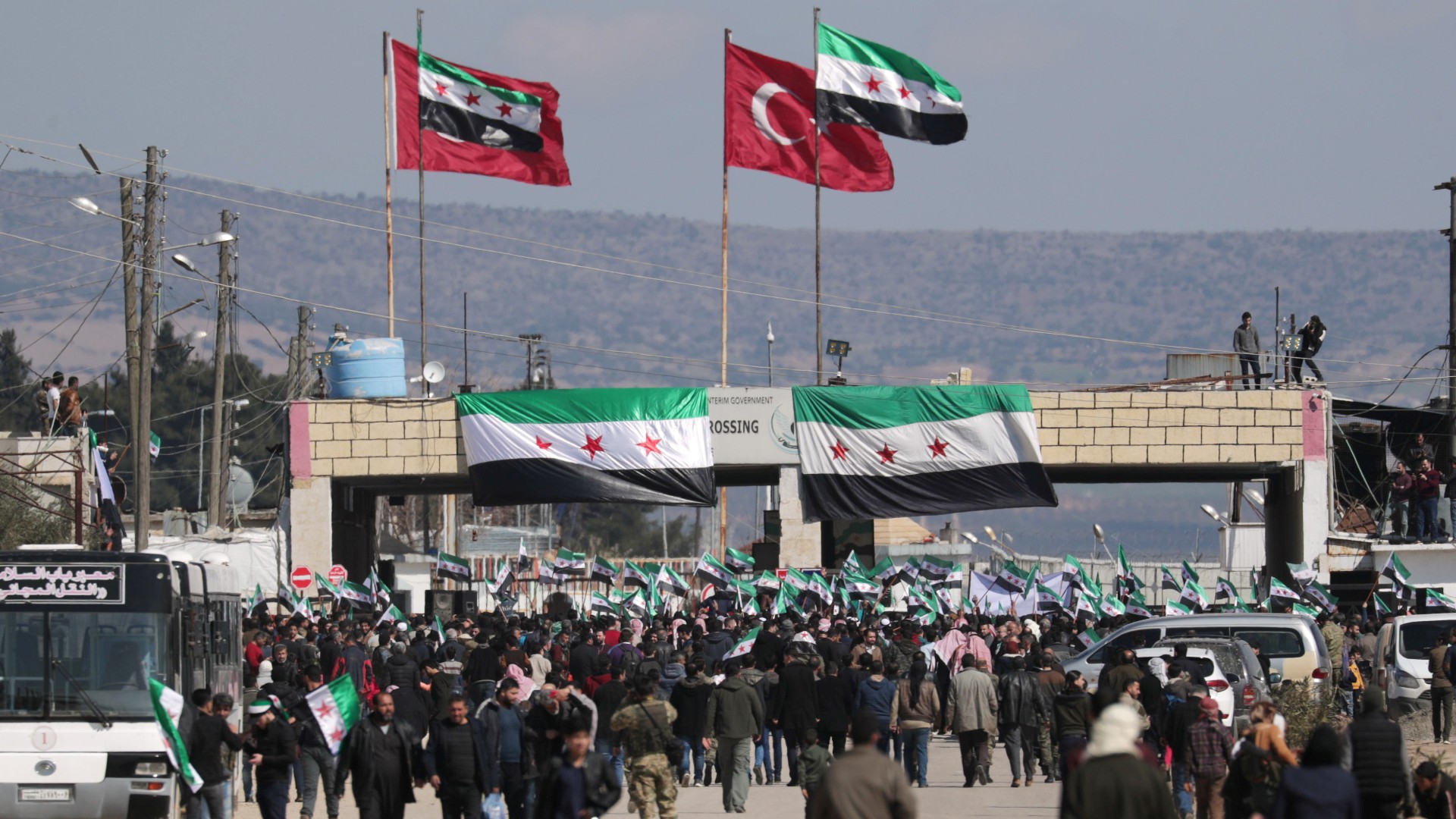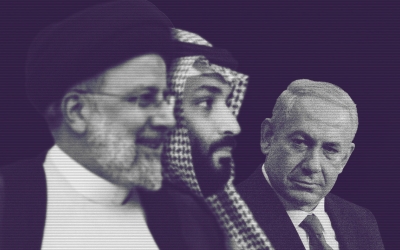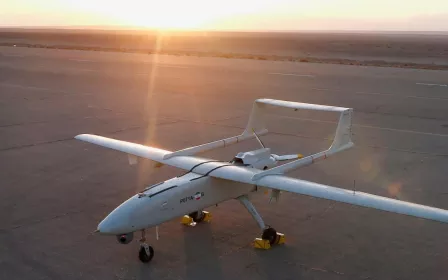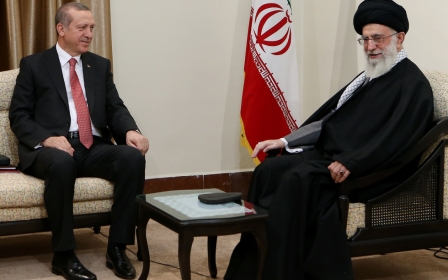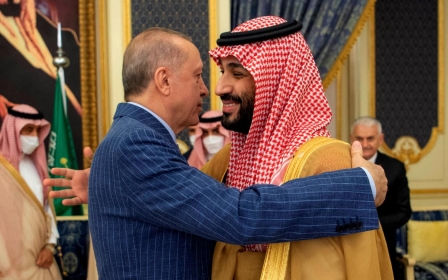Turkey-Iran: Why Ankara is reluctant to close the door on its neighbour
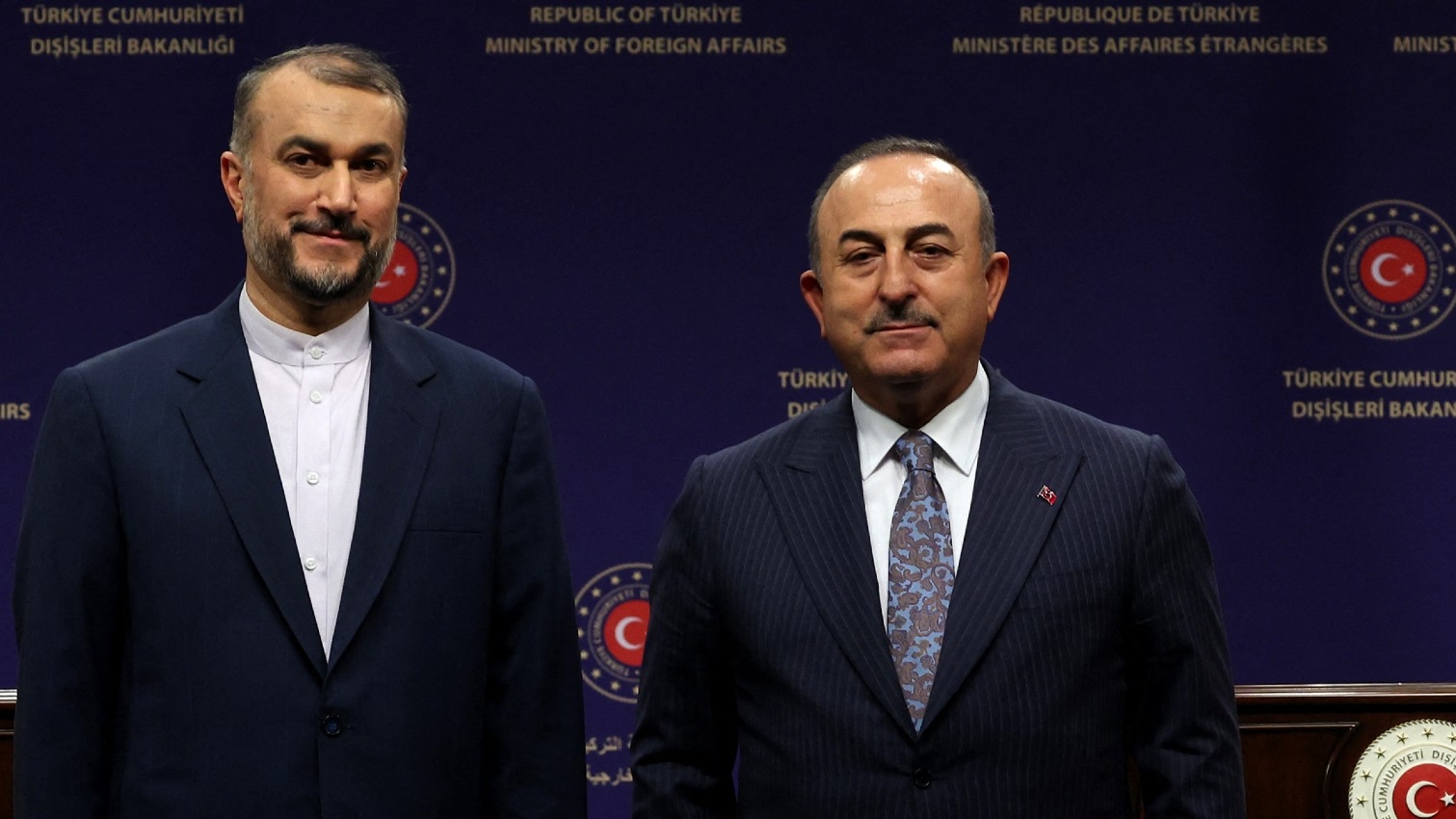
In the late 1870s, Persia’s ruler Naser al-Din Shah watched with trepidation as the caliph Sultan Abdulhamid promoted a new policy of Islamic unity under Ottoman leadership.
A century later, Ankara watched with apprehension as the Iranian revolution ousted the shah, and Ayatollah Ruhollah Khomeini pursued his own brand of Islamic expansionism in the region.
Despite a 17th-century treaty that ended 150 years of intermittent wars over territorial disputes in West Asia and Mesopotamia, the two hegemons have since pursued policies of competition, cooperation, engagement and, very infrequently, confrontation.
Even in modern times, as the West imposes a policy of containment and sanctions on Iran, Turkey has been reluctant to close the door on its neighbour, partly due to geography and Turkish trade and energy needs - but also due to an intersection of vital interests.
Yet, it would be a mistake to dismiss the warm relations between Turkey and Iran as a case of “plus ca change” - especially in view of the recent Saudi-Iran detente. Disputes of late outnumber their common interests. To name a few, Syria talks planned later this month in Moscow will include Iran.
New MEE newsletter: Jerusalem Dispatch
Sign up to get the latest insights and analysis on Israel-Palestine, alongside Turkey Unpacked and other MEE newsletters
Turkey has been a major backer of the political and armed opposition to the Assad regime while Iran’s decades-long support for Assad puts the two countries at odds in these talks. Iranian Supreme Leader Ayatollah Ali Khamenei has also strongly objected to Turkish incursions into northern Syria.
A growing Israeli presence in the Caucasus region alarms Tehran, as does Turkey’s own rapprochement with Israel. A historical battle for influence in Iraq, particularly in the northern region, between Ottoman Turkey and Persian Iran has only grown over the past decades, accelerated by the 2003 US-led invasion and more expansionist foreign policies in both Tehran and Ankara.
In addition, Turkey’s alignment with Nato in the Ukraine conflict, while Iran exchanges military equipment with Russia, also raises concerns. Yet Turkey has tried to maintain good relations with Moscow, at times acting as a mediator, with President Recep Tayyip Erdogan working the phones with both Vladimir Putin and Volodymyr Zelensky, following a policy of engagement, as confrontation would come with far higher costs.
Ankara would be hard-pressed to expect Tehran to sacrifice Yerevan without assistance in reining in Azeri irredentism
In Syria, Turkish and Iranian interests collide. For Iran, Syria is an arena to challenge Israel; for Turkey, Syria harbours a near-existential threat. The fallout from the Syrian conflict poses a direct challenge to Turkey’s national security and territorial integrity, due to the presence of armed groups that are affiliated with the Kurdistan Workers’ Party (PKK) and actively supported by the West. At the same time, the influx of more than 3.5 million Syrian refugees places enormous pressure on a country currently managing a humanitarian crisis resulting from the 6 February earthquake.
The Astana process remains the only viable mechanism to resolve the Syrian crisis. Bringing in Iran, Syrian President Bashar al-Assad’s biggest supporter, may be the missing piece of the puzzle. Iran’s inclusion in the process is key to Ankara’s normalisation with Damascus, and has boosted Turkish expectations of eliminating the PKK-linked People’s Defence Units (YPG) in Syria and encouraging the return of Syrian refugees to their homeland. For Iran, its inclusion is an opportunity to cement its gains in Syria by leveraging its regional influence.
Kurdish separatism
An unpopular view among those who supported the US-led invasion of Iraq two decades ago suggests that Iran and Turkey have emerged as the biggest winners. In Ankara, it is thought that Tehran may be able to influence an Iran-friendly government in Baghdad to manage Turkey’s PKK problem in both Syria and Iraq.
In Ankara’s view, the PKK in northern Iraq is open to Iranian influence via its relationships with Iraqi Kurdish leaders, and some suggest that the Iranian government is in contact with both the PKK and its Syrian affiliates. Still, much rests on what Turkey is willing to offer Iran in return for such cooperation. Kurdish separatism, too, remains a concern for Tehran in its heavily Kurdish regions, and Turkey could prove helpful to Iran by managing irredentist ethnic Azeris in Iran.
Turkey’s policies in Iraq are influenced by the presence of PKK bases in the porous border areas, the status of Turkmens, and the country’s territorial integrity. Iraq’s central government has condemned Turkish cross-border operations against PKK sanctuaries, while doing little to tackle the issue to Ankara’s satisfaction. Turkey’s most recent anti-PKK operation, dubbed “Operation Claw-Lock”, was waged last April following a visit to Ankara by Masrour Barzani, the prime minister of Iraq’s Kurdish region.
Iran, too, has a contentious relationship with its own Kurdish population. Kurdish separatist groups from Iran have found shelter in Iraq, and Iran regularly targets the positions of the Iranian armed opposition. Iraq’s foreign ministry has condemned the attacks by both Iran and Turkey, saying they distract from “the efforts of countering terrorism” on a regional level - but beyond rhetoric, little has been accomplished.
Iran sees Israel’s presence in Azerbaijan as part of a western encirclement, suggesting that Israel is conducting intelligence operations by Israeli-backed Azeri agents in Iran
Meanwhile, the strengthening of Azerbaijan-Israel relations has given Tehran reasonable cause for discomfort, as Tel Aviv has made no secret of its intentions to use Turkey-allied Baku as a springboard for attacks on Iran, despite Azerbaijani denials.
Iran sees Israel’s presence in Azerbaijan as part of a western encirclement, suggesting that Israel is conducting intelligence operations by Israeli-backed Azeri agents in Iran to carry out sabotage and assassinations, notably the suspicious January 2023 shooting incident at the Azerbaijani embassy in Tehran.
“We see the presence of the Zionist regime in the region as a major threat to peace and stability. Wherever this regime is involved, there has been insecurity and crisis,” Iranian Foreign Minister Hossein Amir Abdollahian told his Turkish counterpart on 8 March. “The Islamic Republic of Iran warns the parties to pay close attention to the behaviour of the Zionist regime. They should not allow its presence in the region.”
Appeasing tensions
Turkey’s own rapprochement with Iran’s arch-foe Israel has also raised serious concerns in Tehran. Analysts suggest the current climate will likely render Iran more amenable to negotiations with regional rivals, which might account for the recent detente with Saudi Arabia.
Azerbaijan and Turkey are on the same page on Caucasus matters, with both viewing the creation of a “Zangezur corridor” through Armenia’s southernmost Syunik province as key to a joint plan for a connected Turkic world. Standing steadfastly in the way of this dream is Tehran, which views that goal as incompatible with the region’s geopolitical and historical realities - and bypassing Iran would be unacceptable.
More significantly, Iran is deeply concerned about the rhetoric emanating from Baku in the aftermath of the Second Nagorno-Karabakh war and the prospect of enraging the ethnic Azeri population in its north. The outbreak of popular protests in Iran only compounds the resurgence of Azeri irredentism in the north, Kurdish separatism in the west, and Balochi claims in the southeast.
How far Iran will go in appeasing tensions with its neighbour is debatable. Ankara would be hard-pressed to expect Tehran to sacrifice Yerevan without assistance in reining in Azeri irredentism or mitigating the risk of an attack on Iran from Israel. These matters are as existential to Tehran as PKK separatism is to Ankara, especially during an election year.
Yet, despite the differences between Tehran and Ankara, as US and western countries confront Iran, one should still expect Turkey to take a conciliatory and diplomatic approach to its relationship with Iran, even under enormous Nato pressure. A regional war would have significant adverse impacts on Turkey, and it is unlikely that any Turkish administration would be supportive of a military option.
Expect Ankara to carefully follow a policy of dialogue, to seek opportunities for cooperation and collaboration, and to monitor the situation closely for opportunities with or threats from Tehran.
Today is important, but so is history and geography.
The views expressed in this article belong to the authors and do not necessarily reflect the editorial policy of Middle East Eye.
Middle East Eye delivers independent and unrivalled coverage and analysis of the Middle East, North Africa and beyond. To learn more about republishing this content and the associated fees, please fill out this form. More about MEE can be found here.


